
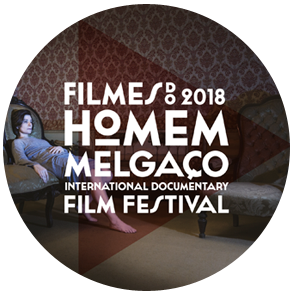
Participants
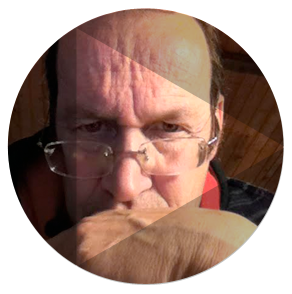
Abi Feijó
Director, Producer, Professor of Animation Cinema and Director of the House Museum of Vilar. PhD from University of Fine Arts of Porto (80). Internship at the National Film Board of Canada (85), where he directs his first film. Founder of Filmógrafo (87), Casa da Animação (01), Ciclope Filmes (02) and Quinta Imagem (12). Director of the following films: How Calm it is (85), Time of Darkness (87), The Outlaws (93), Portuguese Fado (95), Stowaway (00) and Our Lady of the Presentation (15) among others, which received over 40 mentions and awards. Worked as Producer on (since 97): The Night (99), Tragic Story with Happy Ending (05) and Kali the Little Vampire (12) by Regina Pessoa, Amélia & Duarte (15) by Alice Guimarães and Mónica Santos. The produced films have received about 95 awards and mentions. Tutor in several Animation Film workshops in Portugal, Spain, France, Italy, Israel, Scotland, Poland, Brazil, Mexico, Lebanon and China, especially with children (since 85) and young people. Professor at Catholic University of Porto (99-01), ESAP (02-16), Na Tainan National University of the Arts (Taiwan) (06-09), ESAG Guimarães (since 2009) and University of Algarve (12-13), at BAU - Centro Universitário de Diseño of Barcelona (15-17). He also serves as President of ASIFA - International Animation Film Association (00-02) and Vice President of ASIFA Workshop Group (95-01). Co-author of the interactive manual Teaching With Animation (www.animwork.dk/twa). Nowadays Abi has been running the House Museum of Vilar – the Moving Image - (since 14) and producing the animation short films: Uncle Tomás and the Accounting of Days by Regina Pessoa, in co-production with ONF / NFB Canada and Les Armateurs (France) and also Ride, by Paul Bush, a co-production with Ancient Mariner, UK.
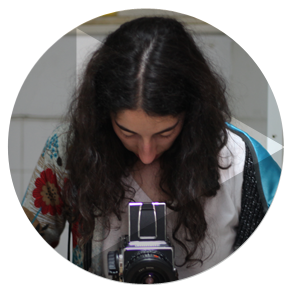
Ana Luísa Martins
Graduated in Cinema from UBI, now attending a Master's degree in Audiovisual Communication - specialization in Documentary Photography from ESMAD. In 2017, she was producer and photography director for the film Cedrim (Diogo Vale, 2017), which premiered at the Short Film Festival of Vila do Conde and, in the same year, exhibited her Apneia and Tricanas photographic projects at the "A Filantrópica" Cooperative (Póvoa of Varzim). She currently divides her time between cinema and photography.
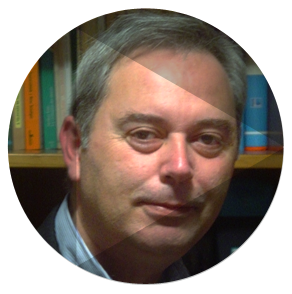
Albertino Gonçalves
Albertino has a master’s degree in Sociology from the University of Paris V-Sorbonne (1981) and a doctorate in Sociology from Universidade do Minho (1994), where he aggregated in the Sociology disciplinary group (2005). He has been teaching, since 1982, subjects in the field of social sciences methodology and cultural sociology, lifestyle and the arts. Coordinator of the post-graduation courses at Institute of Social Sciences, a member of the founding committee of Casa Museu of Monção and researcher at the Studies Center Communication and Society.
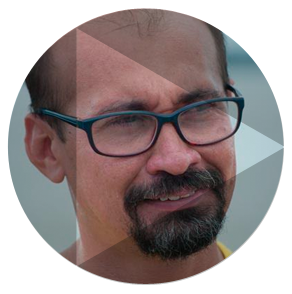
Alessandro Ricardo Campos
PhD in the Postgraduate Program in Sociology and Anthropology – PPGSA / UFPA, Master in Social Anthropology by the same Program (2014), and Specialist in "African Education and Knowledge and Law Enforcement 10.639" by the Federal University of Pará (2012). He holds a degree in Social Sciences from the same university (2005). He works as a Teacher (Class II) at the State Department of Education (SEDUC / PA) and as an external teacher at UFPA. Founding member of the Research Group in Visual Anthropology and Image – Visagem / PPGSA, and editor of the Electronic Magazine Visagem. Alessandro also works as a curator of the Ethnographic Film Festival of Recife and coordinator of the Ethnographic Film Festival of Pará.
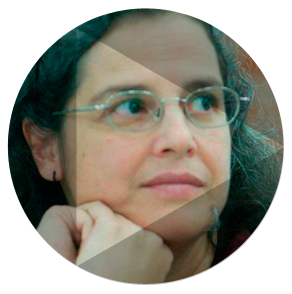
Alice Fátima Martins
PhD in Sociology, Master’s in Education, degree in Visual Arts. Professor at the Faculty of Visual Arts at the Federal University of Goiás and at the Postgraduate Program in Art and Visual Culture. Researcher at CNPq. Author of the books "Saudades do Futuro: science fiction in cinema and the social imaginary about what's coming", and "Waste pickers of the cultural industry".
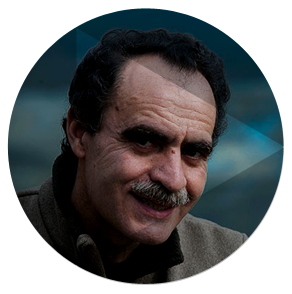
Álvaro Domingues
Álvaro António Gomes Domingues (Melgaço, 1959) is a geographer, PhD in Human Geography and associate professor at the Faculty of Architecture of the University of Porto. Teaching activity: Teacher of the integrated master's and doctoral program in Architecture and PhD Course at FAUP; Member of the Scientific Council at FAUP; Professor of the Master’s degree "Project of the Urban Environment" (FAUP/FEUP); Teacher of PhD Course of Architecture of the University of Coimbra.; Professor of the Summer Courses at the Serralves Foundation; Visiting professor at the Federal University of Rio de Janeiro; Visiting Professor at the University of Granada. Regularly collaborates with other universities, foundations, Público newspaper, cultural and professional associations, whilst developing a regular activity as a lecturer. Research fields: Urban Geography, Urban Planning, Landscape, Territory, Cultural Policy. His recent books include: Vida no Campo (ed. Dafne, Porto, 2012), A Rua da Estrada (ed.Dafne, Porto, 2010) and Políticas Urbanas II (Calouste Gulbenkian Foundation, Lisbon, 2012 with Nuno Portas and João Cabral)
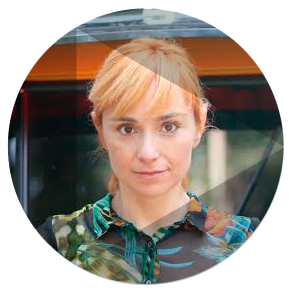
Ângela Ferreira
Ângela Ferreira, a.k.a Ângela Berlinde, is an artist and curator with a PhD in Visual Communication from the Minho University in Braga and a master's degree in Multimedia and New Technologies from the Utrecht School of Arts, The Netherlands. She is a curator of cultural projects in Portugal and Latin America and has published works in Photography and Text about Portuguese India and the Painted Portraits of the Brazilian Indians. She is an assistant professor at Escola Superior of Media Arts and Design of the Polytechnic Institute of Porto and works in the field of research on the hybrid forms of photography. Co-founder of the Braga Image Meetings Photography Festival, having been artistic director and curator of its exhibitions. Angela has been a member of the Board of Trustees of the Museum of Photography in Fortaleza since 2017 and is a consultant in Photography language at the State Secretariat of Culture of Ceará.
www.angelaberlinde.com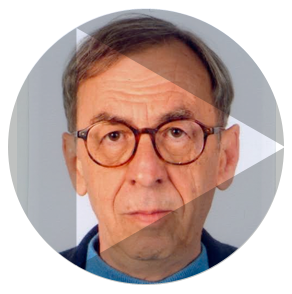
Bernard Despomadères
Bernard has graduated in Law and Political Science. Amongst other roles, he was a Professor, Director of the Art and Culture Department of the Institut Français du Portugal; responsible for the organization of the French Film Festival in Porto, co-founder of the Alliance Française de Porto (Board member), collaborator with Jean-Loup Passek in the creation, and later in the management of the Melgaço Film Museum, Executive Producer of the film En une poignée de mains amies by Jean Rouch and Manoel de Oliveira.
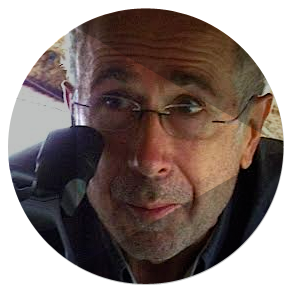
Bernard Surugue
Bernard Surugue, then a 20-year old engineering student and pianist, commits as a music teacher in Nigeria where he meets Jean Rouch in 1966. The famous filmmaker-ethnologist invites him to share his own research field to study the music of the Songhay possession dances. Together, crossing village after village, they observe and collect the ritual representations of Songhay mythology. In 1973, Surugue presented the first thesis at the Sorbonne based on a film. As a filmmaker, he is the author-director of about sixty films that have earned him many international awards. With Jean Rouch, his master and friend, he co-directed "The dream is stronger than death", selected at the Berlin Film Festival in 2002. Former WHO International Officer, Honorary Research Director at the IRD, where he founded the audiovisual department, he taught scientific cinema at the Panthéon-Sorbonne University and was an advisor to the president of the Academy of Sciences and vice-president of the Jean Rouch Foundation.
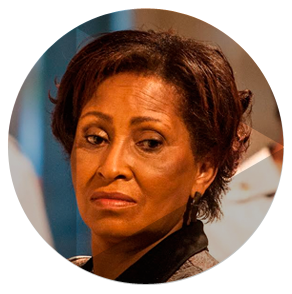
Carmen Silva
Protagonist in the film The Cambridge Squatter, is one of the founders and the main leadership of the Downtown Rootless Movement (MSTC), in the city of São Paulo, Brazil. With an ample history of struggle for housing and alongside other relevant Brazilian social movements, such as the Fight for Housing Front (FLM) and the Central of Social Movements (CMP), the MSTC currently leads 11 of the 21 buildings occupied by these entities in the city of São Paulo. Overall, the more than 20 occupations represent around five thousand people fighting for a dignified and definitive dwelling.
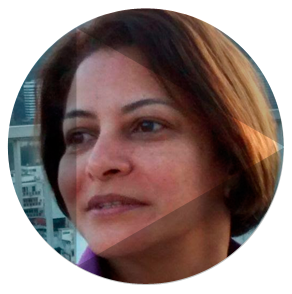
Denise Machado Cardoso
Denise Machado Cardoso is an anthropologist and historian, currently living and working in Belém do Pará, northern Amazonia. She is a PhD (2006) in Social and Environmental Development and holds a Masters (2000) in Social Anthropology from the Federal University of Pará. She is a member of the Research Ethics Committee at the same university and coordinates the Arthur Napoleão Figueiredo Laboratory of Anthropology (LAANF) developing studies about social relations on gender, ethnomuseology, indigenous health, education and cyberculture. Coordinator of the Visual and Image Anthropology Studies Group (VISAGEM) and the Group of Studies on Indigenous Populations (GEPI).
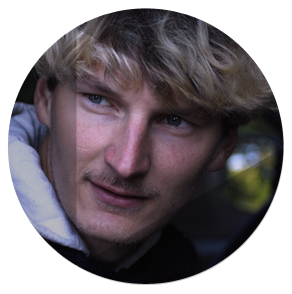
Dennis Stormer
Dennis Stormer grew up in northern Germany and got in touch very early with different arts like performance, installation, writing and theatre. Eventually studied film at Filmakademie BW and at the Columbia University NY. He worked as a freelancing film critic and is now working as a cinematographer and director in Berlin, Stockholm and NY.
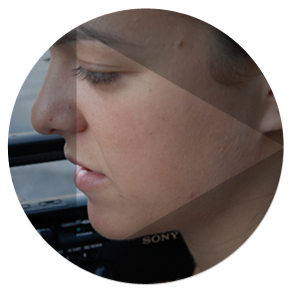
Diana Gonçalves
Diana Gonçalves was born in Tui in 1986. She holds a graduate with honours in Audiovisual Communication (Vigo University, 2008) and a Masters degree in Communication and Creative Industries (Santiago de Compostela University, 2013). In 2009, Diana produces and directs her first documentary Mulleres da Raia. Between 2009 and 2013 she takes part in the Laboratory of Documentary Creation “El Retrato Filmado”, directed by Marta Andreu. Years later, she retrieves the material she had shot during the laboratory and edits it together. The resulting piece, Palmira, is her second documentary.
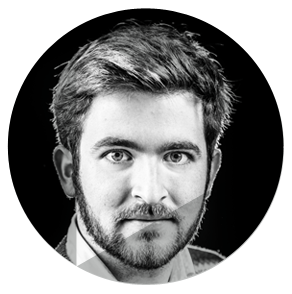
Flávio Cruz
Filmmaker graduated in audiovisual communications technology, by the School of Music and Performing Arts of Porto -ESMAE (2012). He directed the TV show Tintim por Tintim and the pilot episode for the TV show Vive em Rede for RTP1. He was director of photography/cameraman in the project Minuto Escolha Portugal, for Continente/RTP1.
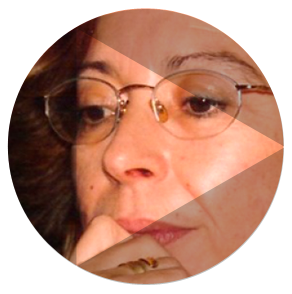
Graça Lobo
Graça Lobo holds a Masters degree in Cultural Management with a Thesis in Public Education for Cinema. She was Coordinator of the Project Group for the National Cinema Plan, in 2012/13 and 2013/14. Co-author and coordinator of the Youth / Cinema / School Program for the Regional Education Board of Algarve since 1997/98. Co-author of the Option Subject in Cinema Program of the 3rd cycle of Basic Education. She was a primary and high school teacher between 1975 and 1997 and supervising professor in Teachers’ formation at Escola Superior da Educação of Algarve from 1993 to 1996. Visiting professor at the University of Algarve teaching Cinema subjects between 1994 and 2001.Graça is an accredited trainer by the Council for Continuing Education of Teachers, and has held dozens of training courses in Film Literacy since 1999. Vice president of the Faro film club from 1996 to 2008. Coordinator of several publications in the field of cinema. She made presentations in National and International Congresses.
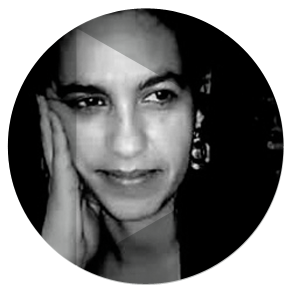
Isa Catarina Mateus
Isa completed the curricular part of the Master's Degree in Contemporary Art History at Universidade Nova de Lisboa (2000) and a Degree in Portuguese Studies - field of scientific specialization at the University of Algarve (1998). Has the Course of Musical Education and piano, by the Regional Conservatory of Algarve (1992). She did radio. Founding member of RADIX, within the Ministry of Culture. Editorial coordinator of Sul Magazine. Teacher of Music Education, Civic Education and Portuguese History at basic education. Lecturer of Contemporary Artistic Movements in Higher Education. Instructor of Visual Communication and Photography and Video and author of the teaching materials for the curricular unit of psychoanalysis at the University of Algarve. Trainer in Art History and Educational Technologies, Audiovisual Media in Actions for the Continuing Education of Teachers. She was a member of the artistic training team, field of Literature and Writing, in the project ‘I see a monument from my window’ from the Regional Directorate of Culture of Algarve. Coordinator of the training for the National Cinema Plan, instructor in the Initiation, Continuity and Follow-up Training Actions of Teachers and author of the pedagogical materials of the PNC (2012-2014). She has made communications in congresses in the fields of Art History and literacy and has also published poetry and short stories. Isa develops workshops in reading, writing and voice for students from the different levels of education. Collaborator and author of the training materials of the Youth / Cinema / School Program and author of the project VER para LER of the Algarve Regional Education Board since 2004. Coordinator of the Training Committee of the Faro film club.

Izabela Tamaso
Isabella holds a degree in Radio and Television from the University of São Paulo (1991), a master's degree and a doctorate in Anthropology from the University of Brasília. She is currently an assistant professor IV of the Federal University of Goiás (UFG), a member of the Brazilian Association of Anthropology (ABA), member of the ABA Heritage and Museum Committee. She has experience in the area of Anthropology, with emphasis on Cultural Heritage and Urban Anthropology, Anthropology of the Place, Cultural Performances.
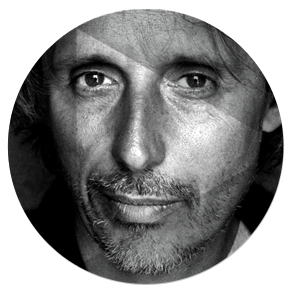
Jean Loïc Portron
In 1981, took part in the creation of Ateliers Varan. Between 1985 and 1988, within the Ateliers and with the support of the Foreign Office, he has taught and formed young south African filmmakers in Documentary Film at the University of Witwatersrand, Johannesburg. In 1998, with André Van In, he has oriented said filmmakers in the directing of a collective film: Chroniques sud-africaines (110 min., JBA production, ZDF, Arte). After 1991, he collaborated mainly with the ARTE channel, for which he has directed a series of documentaries:
- 1991-2000: Paysages (20 X 26 min. JBA Production, INA, Arte)
- 2000-2010: Les Foyers de création (7 X 52 min. 13 Production, Arte)
- 2005-2010: Les Arts du mythe (5 X 26 min. Program33, Arte)
- 2011 : L’Energumène (77 min. JBA Production, Arte)
- 2013 : Braddock America (103 min. Program33, avec Gabriella Kessler)
- Festival de Cannes 2013, Festivals de Thessalonique, Three-Rivers (Pittsburgh), La Rochelle, Cleveland, Alger, etc.
Since 2014, Jean-Loïc has been setting up a filmmaking workshop in Johannesburg (South Africa) produced by JBA Production e Arte. In 2015, the workshop will direct the documentary Born Free.
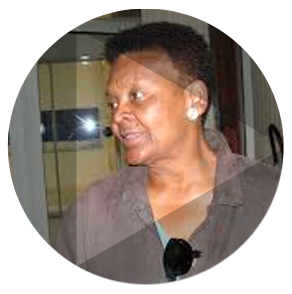
Jocelyne Rouch
Founder and President of the Jean Rouch Foundation.
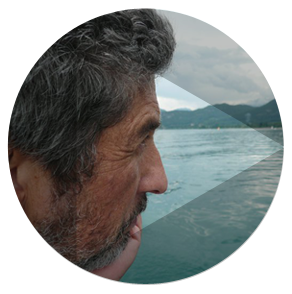
José Manuel Alves Pereira
Graduate from the Escola Superior de Cinema of the National Conservatory, in the field of Editing. He started working in the cinematographic nucleus of the Immigration State Secretary in 1977, through the directing and/or editing of 21 short films and the feature-lengths "Imagens de Festa e de Mudança, "Provas para um Retrato de Corpo Inteiro", "Lisboa, Primeira Página". Between 1978 and 1994 he worked as an editor, especially in "Música, Moçambique", "Sem Sombra de Pecado", "A Mulher do Proximo" and "Os Cornos de Cronos", all by José Fonseca and Costa, and the series “The Portuguese Discoveries", by Bento Pinto da França, "Les Vagues du Temps - Portugal Régions" and "As Vagas do Tempo – Poder Local", both by José Miguel Herrera, and the films "Iratan and Iracema", by Paulo Guilherme d’Eça Leal, "Contactos" and "Vertigem", both by Leandro Ferreira, "Terra Fria" by António Campos and "Ínsula" by António Loja Neves. He’s been a professor at Escola Superior de Teatro e Cinema since 1988, in the field of Editing, where he was area coordinator, assistant director of the Department of Cinema, chair of the Pedagogical Commission and Scientific Commission of the same department, and vice-president of the Scientific Council at ESTC and president of the Pedagogical Council of the same institution.
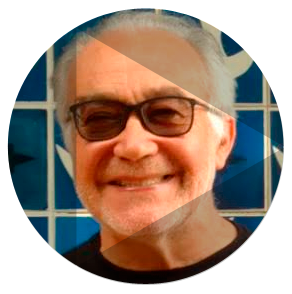
José da Silva Ribeiro
José has a doctorate in Social Sciences – Anthropology and completed higher Studies in Film and Video at the Arts School of Porto. He’s a Professor at the School of Visual Arts, University of Goiás and a Researcher at the Migration Studies Center and Intercultural Relations from the Open University, where he is responsible for the Media Research Group and Cultural Mediations. He’s conducted field work in Cape Verde and in the urban peripheries of Lisbon and Porto, Brazil, Cuba and Argentina. Co Organizer of the Viana do Castelo International Film Conference, the International Seminar Images of Culture/Culture of Images. Coordinator of the Images of Culture/Culture of Images network. Collaborator with DIVERSITAS-USP. Visiting professor at European universities and Latin America.
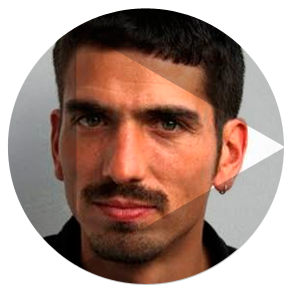
Jurek Sehrt
Studied History and Spanish in Berlin, Barcelona and Guadalajara (Mexico). Since 2007 he manages the Area of Education of the German Cinematheque – Museum of Film and Television (Deutsche Kinemathek – Museum für Film und Fernsehen), Berlin where he is responsible for the entire educational programing and has initiated several film- and media education projects. Furthermore he works as a consultant and curator for other cultural institutions and teaches as a university lecturer history, museology and media sciences (e.g. at Freie Universität Berlin, Universität Konstanz).
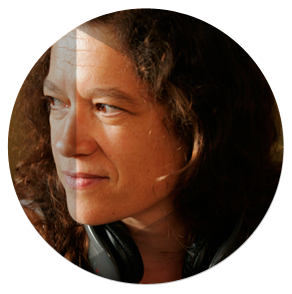
Laurence Ferreira Barbosa
After studying cinema at the university, Laurence Ferreira Barbosa made three short films and her first feature film in 1993, "The Normal People Have Nothing Special", which received critical acclaim and several awards. The film was produced by Paulo Branco, like all his films. Since then she has made five other films and two for television (Canal Arte). Currently she’s working on a comedy.
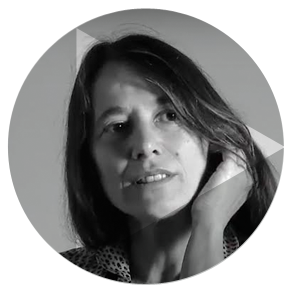
Luciana Fina
Was born in Bari (Italy) and has been working in Lisbon since 1991. After studying French and Portuguese Languages and Literature, she was initially an independent film programmer in Italy and Portugal, collaborating mainly with Cinemateca Portuguesa in the 1990s. In 1998 she made her first film documentary. Since then, while diversifying forms and strategies of creation, she’s made several documentaries and developed a body of work that often migrates from the cinematographic room to the exhibition space. She has worked intensely on the reconfiguration of the film object and its mise-en-espace, in a renewed dialectic between cinema and the arts. In 2004, she created a series of film portraits, gathered in the project "The Time of a Portrait", and presented her installations and films in Portugal, France, Sweden, Spain, Norway, Italy, Uruguay, Mexico, United States and Canada. Her last documentary, "In Medias Res", a dialogue with the thoughts and works of the architect Manuel Tainha, received an honorable mention of the Temps d'Images Film on Art Award 2014 and the national award for best film at the Architectures Film Festival of Lisbon. The debut of the film Third Floor happened at Doclisboa'16, in an official selection within the Portuguese competition.
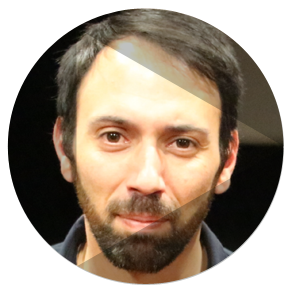
Luís Azevedo
Cinephile, collaborator in several film festivals.
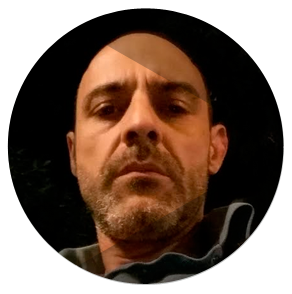
Luís Miguel Oliveira
Born in Tomar (Portugal), September 1970. Graduated in Communication from the School of Social Sciences at University Nova of Lisbon. Since 1993 he's been a curator for the Department of Permanent Exhibition at the Portuguese Cinematheque - Museum of Cinema. He directed said department from 2009 to 2015. He is also a film critic at the daily broadsheet newspaper Público since 1994.
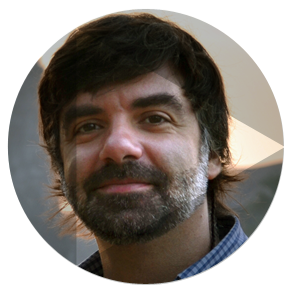
Luís Miguel Portela
Born in Loulé, 1979. Moved to Lisbon in 1997 to study Economics, making a career in the field. In 2009, however, he decides to change his life to devote himself to his great passions: traveling, writing and photography. Between 2013 and 2016 he completed a round the world trip, without flying, which he documents photographically. On his return to Lisbon he enrolls in the ETIC photography course, finished in 2017.
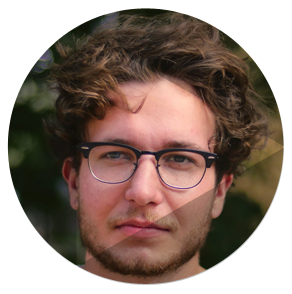
Maciej Miller
Maciej Miller was born in Olsztyn, Poland, in 1994. In his free time he indulges his passion for photography and windsurfing. He has recently finished Gdynia Film School, Between Us being his graduation film.
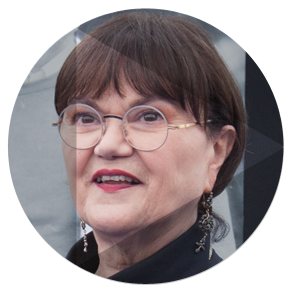
Margarita Ledo Andión
A writer and filmmaker, Margarita is a professor of audiovisual communication at the University of Santiago de Compostela, USC, where she coordinates the Audiovisual Studies Group and directs the R & D project "EU-VOS: Towards a European subtitling program in non hegemonic languages”. Her research lines focus on the production and access to cultural goods, ranging from diversity, communication policies and feminist theories in the universes of creation and expression. She won the National Prize for Galician Culture 2008 in Cinema and Audiovisual and is a member of the Galician Real Academia. Her book Cine de fotógrafos (2005) Gustavo Gili, Barcelona, was awarded the Prize "Fundació Espais d'Art Comtemporani". Her films include Holy Freedom (2004), Manuel Maria: “eu son fala e terra desta miña Terra” (2005/2016); Liste, pronounced Líster (2007) or One Hundred Fires 1913 (2008), plus the fiction The White Scar (2012). Recent articles: Documentary Film, Cyberculture and proximity technologies (2015) on Screen. Notebooks in Communication and Innovation; the body, that unbearable common language, in The informational treatment of violence against women (2015) Inmaculada Postigo and Ana Jorge Alonso (Coord.), CAC, La Laguna, Vestigio y Extrañeza: on the work of Bernardo Tejeda, in Image, body and sexuality, (2014), Francisco Zurian (ed.), Ocho y Medio, Madrid. She is the first woman awarded with the Otero Pedrayo prize in recognition of her contribution to the cultural development of Galicia.
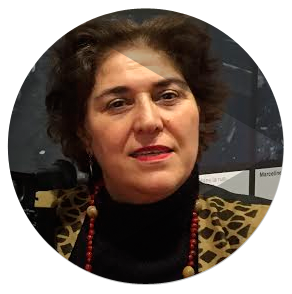
Mina Rad
Mina Rad holds a degree in Communication and History from the University of Paris. She was an international journalist, radio and television presenter and cultural reporter. She has been a documentary filmmaker since 2013 after having attended the Ateliers Varan. In 2017, she directed her tenth film "Jean Rouch, Regards Persans". She is the founder and president of APRESVARAN, an alumni association of Ateliers Varan created in 2013. She is co-director of the APRESVARAN Documentary Film Festival. Mina also coordinates the Women's Film Festival for Women's Day. A Frenchwoman of Iranian origin, she’s lived and worked in Europe and in different parts of the world: USA, Central America and Asia.
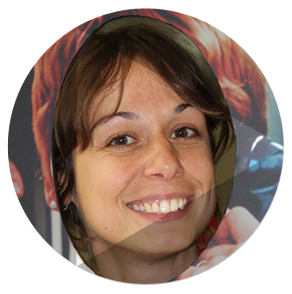
Noemí Sas Castilleja
I have a bachelor’s degree on History of Art and a master in International Cooperation and Cultural Management.I’ve been working in many cultural institutions in my country and abroad, related to heritage and community projects based in arts and media. I am in charge of the Education Services of Filmoteca since 2011.
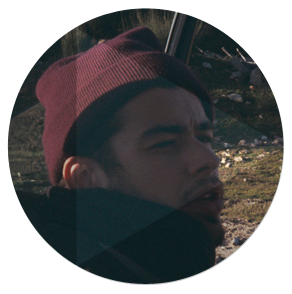
Paulo Carneiro
Paulo Carneiro, 1990, Lisbon, Portugal. Graduated in sound and image at ESAD.CR. Student of master’s degree at National Film School (ESTC). Works since 2011 in direction and editing with João Viana, Feldman, Benard da Costa, Manuel Mozos and Rob Rombout. His first experience, Water to Tabato, was premiered at Jihlava IDFF.
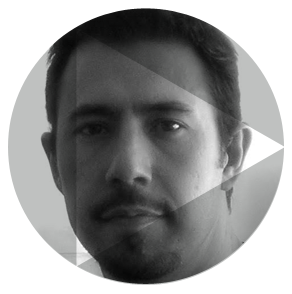
Paulo Oliveira Fernandes
Paulo is an elementary and secondary school teacher. He developed an interest in animated film whilst in his youth and began attending the CINANIMA Festival at the beginning of this millennium. He frequented the course of Animated Cartoon in the technique of free drawing by Casa da Animação tutored by Jorge Ribeiro and Daniela Duarte. He regularly organizes animated film workshops for teachers, educators and those interested in animation. In the last decade he has provided guidance in the making of dozens of animated films in various educational contexts, with some of them being selected and awarded at specialty festivals. Paulo is a member of the organizing committee of CINANIMA - Espinho International Animation Film Festival and its Educational Service.
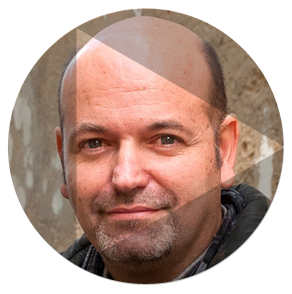
Pedro Sena Nunes
Pedro is a director, cultural programmer and teacher in the fields of artistic creation, documentary and experimental film, directed several films with the support of ICA / RTP - documentaries, fiction and advertising spots. Co-artistic director of Vo'Arte and co-founder of the Teatro Meridional Company, he is a consultant and coordinator of several cultural projects.
Integrated team member of European projects Fragile, Unlimited and European Video Dance Heritage (EVDH). Co-director of the International Festivals InShadow, InArte and InMotion - Cinema and Dance, and programmer of Olhares Frontais at Encontros de Viana Film Festival for 15 years, also collaborating with the Filmes do Homem Film Festival. His artistic project focuses increasingly in a practice with a social dimension through the intersection of people with special needs and professional artists.
He’s been intensely dedicated to the pedagogical field for the last 24 years, running laboratories dedicated to creation and experimentation, both documentary and fiction, teacher in the areas of filmmaking, transdisciplinary narratives and the relation of performance with technologies in ESTAL, IPA, AM and EscreverEscrever . Teacher at the Documentary Film Masters’ degree from ESMAE (Porto) for 8 years and teaching coordinator at ETIC for 18 years, where he was creative director, and now cooperates in the implementation of the new HND courses certified by the world's largest educational entity: Pearson.
Orchestrator and director of several projects in theatre, choreography and performance, he won numerous awards for his film, photographic and transdisciplinary work in Portugal and abroad.
Co-creator of the project Generation Soma, supported by the PARTIS Program - Social integration through artistic practices, from the Calouste Gulbenkian Foundation. He is currently a doctoral candidate at the University of Lisbon (UL) in performing arts and moving image, an investigator at GECAPA in the experimental areas of intersection between body and image, and he is filming his new documentary project.
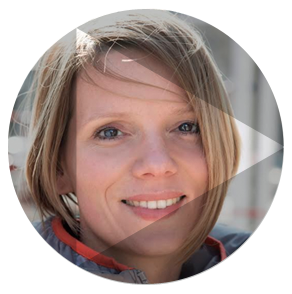
Petra Slatinšek
Since 2004 Petra Slatinšek has been actively contributing to the shaping of film education for children and youth in Slovenia. She founded two major film education projects, in 2005 the education programme of animated film Elephant (Slon) and in 2008 the film education programme Kinobalon at the Kinodvor cinema. The Kinobalon programme received Europa Cinemas' Best Young Audience Activities Award for 2010. In 2013 Petra Slatinšek was elected to the board of the European Children's Film Association.
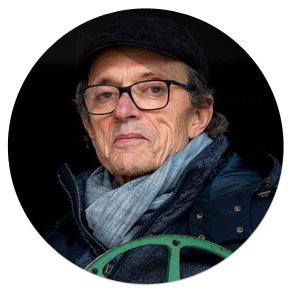
Plácido Romero
Plácido Romero Bernardo, Verín (Ourense) 1952. Former high school teacher, where he worked on the introduction of audiovisual media in didactic practice. He directed reports on the work of several Galician painters and sculptors. In 2012 he was co-scriptwriter and assistant director in the documentary of Aser Álvarez 100% Celso Emilio Ferreiro and directed the DVD edition 102 anniversary testimonials about the great Galician poet. He made several advertising spots related to rural production.
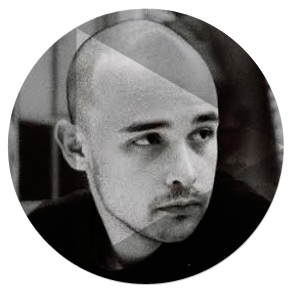
Ricardo Vieira Lisboa
Born in Lisbon in 1991. Master's Degree in Applied Mathematics and Computing (from Instituto Superior Técnico) and Cinema in the field of Directing and Dramatization (by Escola Superior of Theater and Cinema) with a dissertation entitled "The Cinematographic Restoration as Re-choreography, the case of Three Days without God" by Barbara Virginia. Guest programmer of short films at IndieLisboa - Lisbon International Film Festival since 2013, and a film critic on À pala de Walsh's website, which he co-founded, coordinates, co-edits and is one of its main editors. He has produced communication papers and academic articles in the fields of Portuguese cinema history and restoration and cinematographic preservation, as well as programs dedicated to the new names of national cinema, participated in several cycles and round tables and invigorated countless discussion sessions. As a filmmaker, Ricardo produced and directed experimental short films and video, among them Le métro, Vieira da Silva (2016), Children, Madonna and Child, Death and Transfiguration (2016) and Blue Cigarette (2017), which were shown at domestic and international festivals
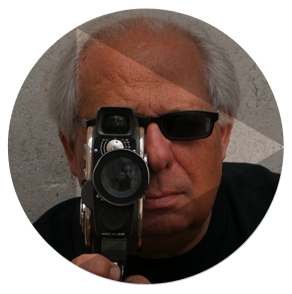
Rui Simões
Rui Simões created the Real Ficção production company in 1986, which produces most of his work, alongside his participation in numerous other audiovisual productions. In recent years he has played a relevant role in the documentary field, with special emphasis on video production in the areas of (dance, theater, music, architecture, etc.), as well as in social areas (mental health, poverty, etc.).
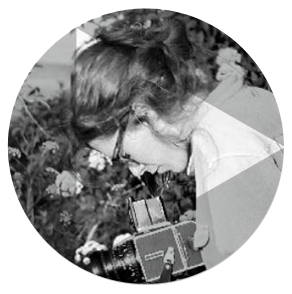
Sandra Teixeira
Currently attending the Masters degree in Documentary Photography at ESMAD - IPP. Trained in Manual Binding, Cyanotyping, and B & W Revelation. Collaborator with CityScope – photography in architecture, landscape and territory. Developed several projects in the field of landscape. She understands the photographic process as a space open to a plastic approach, which allows for the introduction of other elements such as video.
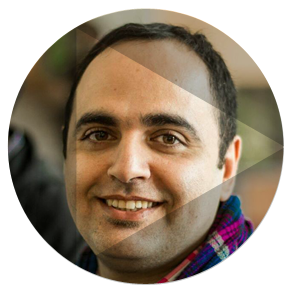
Shahrouz Tavakol
Shahrouz Tavakol is an iranien editor, Filmmaker and a professeur of cinema in Iran. He has studied cinema in Tehran film school in Iran, that had been founded by Ahmad Alasti, one of the students of Jean ROUCH. Shahrouz Tavakol had edited several films of Mehrdad Oskouie, iranien famous filmmaker. He had been a cameraman and editor for the film: Jean Rouch Contes Persans directed by Mina Rad.
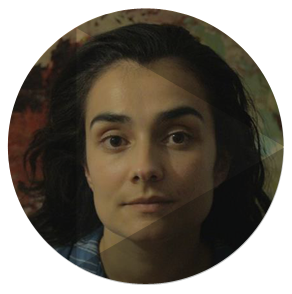
Tânia Dinis
1983, from Vila Nova de Famalicão. Master in Contemporary Artistic Practices, FBAUP, Porto 2015. Degree in Theater Studies, - Interpretation - ESMAE in 2006. Her art projects, developed mainly in performance, film, video, photography and installation, often taking on an itinerant basis. In the last years he has worked from family archive images - photographs, films - personal or anonymous, creating from them new objects.
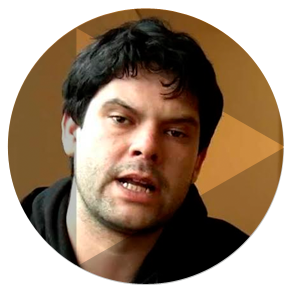
Tiago Afonso
Tiago graduated in Cine-Video at ESAP, trained at atéliers Varan workshops from the Creativities and Artistic Creation Gulbenkian Program, followed the Jean Rouch Seminar in "Anthropologie et Cinema" at the French Cinematheque and completed an MA in documentary filmmaking at ESMAE-IPP. His main activity is the realization of documentary-oriented cinema, having made films about intervention and political reflection, but also works of autobiographical and experimental nature. He´s also carried out several works of installation-video. Collaborator whilst working as a technician (cameraman, sound, editing) in other director’s films - Rodrigo Areias, Regina Guimarães, Ricardo Leite, Catarina Alves Costa, Saguenail, André Gil Mata, Paulo Abreu, Amarante Abramovici ... Teacher in the Audiovisual Communication and Multimedia BA’s Degree at Lusófona University in Porto, in addition to guiding intensive training in the fields of introduction to film language or direct-cinema (documentary). He also works frequently with theater companies. As a programmer, on top of several thematic cycles of cinema, collaborated with the 5th Panorama of Portuguese Documentary and integrates the programming team Taste of Cinema, at the Museum of Contemporary Art of Serralves.
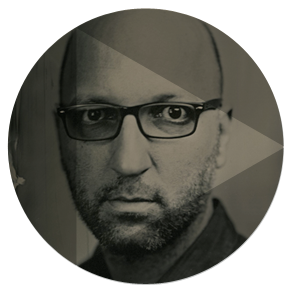
Tiago Hespanha
Graduated in architecture in 2004 and holds a Master on Creative Documentary at Pompeu Fabra University, Barcelona, Spain, in 2012. Is partner of the production company TERRATREME. Lectures at the master DOCNOMADS - European Documentary Master Course. Member of LES ATELIERS VARAN, since 2014. Directed the films: Industrial Revolution, co-directed with Frederico Lobo (2014 - World Première at Visions du Réel, Nyon, Switzerland), Guided Tour (2009 - Audience Award at Indielisboa), The Gift From Afar (2008 - part of the collection "So close, so far" distributed by Fundação Calouste Gulbenkian), Ground Glass I, II (2007 - Award of International Microfilms Festival of Lisbon), Show Room (2007), Quinta da Curraleira (2006 Primeiro Olhar Award for best film in Encontros de Cinema de Viana do Castelo).
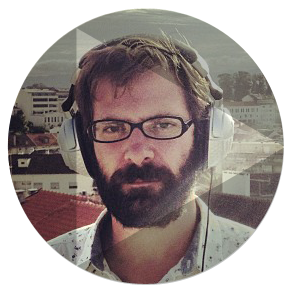
Tiago Pereira
Director, documentary maker, and mentor of the project A Música Portuguesa a Gostar dela Própria (Portuguese music liking itself), that has currently expanded its activity to food and dance. Winner of the Megafone 2010 Award in the Mission Category, he has developed a unique style in documenting, gathering, and mixing moving images. His films follow manifestations of immaterial culture such as music, rituals and performances that explore the concepts of tradition and collective memory.